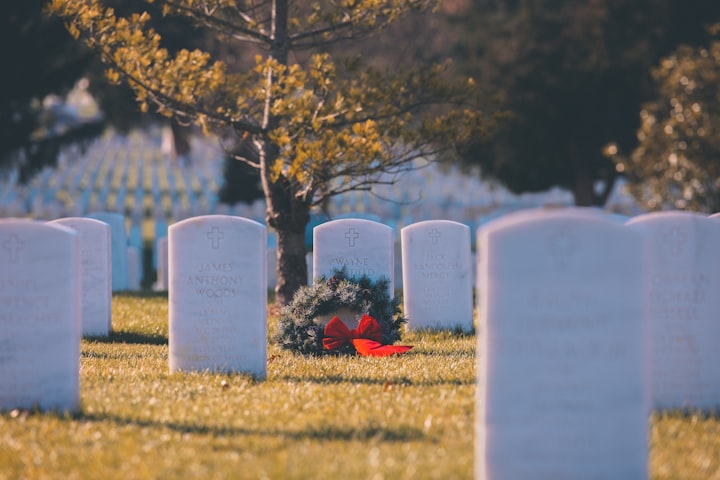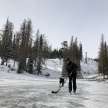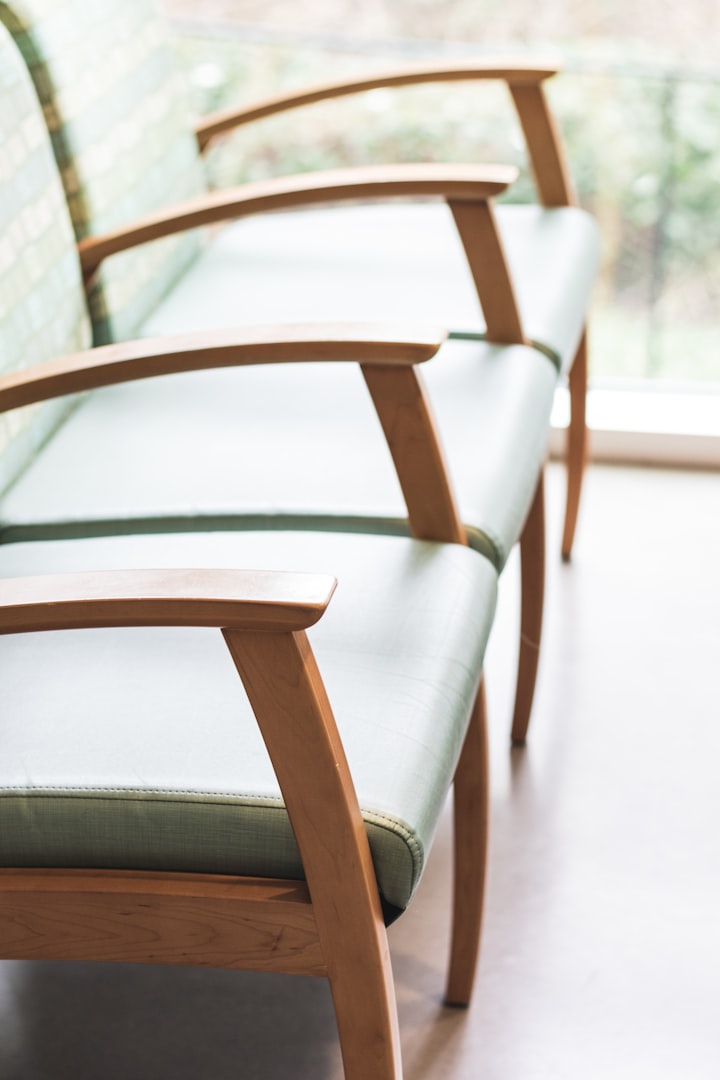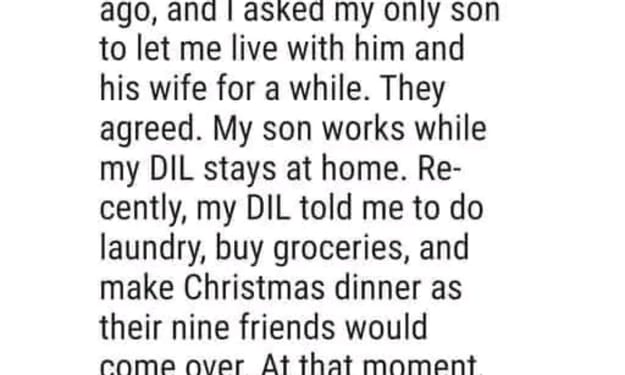An Ohio Burial
The losses within losses contained in a death

It was an early morning in central Ohio. The sun was rising as we passed the ring of the 270 outer belt, heading north. The hours stretched before us on what seemed to be a pilgrimage I was honor-bound to make. My father drove, and I could watch the dew rise from the fields of corn as we passed. Growing up, I knew only the cities and suburbs of Cleveland; the vast agricultural swaths in between metropolises was still quaint and foreign to me. Cleveland: where we were now headed, where my father had been raised, where his last remaining blood relative, other than my brothers and I, had been prepared for burial, and was now waiting for us to arrive.
I had several reasons to be in the car, one of the first being for my father’s sake. It had been a tense and foreboding couple of weeks, starting with the news that one of the staff members caring for my uncle, who had been recovering from a minor stroke in a rehab facility, had tested positive for COVID. Shortly after, the news came that he, also, had tested positive, and then was having trouble breathing, becoming less aware, less responsive. The next step was admission, oxygen support, isolation. I had tried calling his room, only to find that there wasn’t enough staff to facilitate a spur-of-the-moment phone call; it needed to be scheduled, arranged, and that could only could be done by my father. He was as present as he was allowed to be, and we soon had a tearful video call with my father, in full PPE, having just shaved his beard to meet ICU protocol so he could enter my uncle’s room. He held the phone up to my uncle, who was groggy but awake, and we took turns giving him the most we could, in that moment.
How do you really tell someone goodbye, who has known you since your first breath, who was a constant, a reliable presence? How do you tell them what they mean to you, when their high flow oxygen is so loud? Did he hear us, I wondered. Did he understand what we said, when we tried to convey with words what could not have been said, even in the best of circumstances?
That was just before my father decided not to intubate him, when it was offered as the next step in care. The rates of survival after intubation were quite low in the fall of 2020, and my father tearfully declined. “Comfort care” (what an odd term) was implemented, and my uncle passed away soon after.
I had gotten the call that he had chosen comfort care on a Monday morning, as I was about to serve on jury duty. Thankfully, my group was dismissed, as I was not in a place emotionally to effectively carry out my civic duty. I wept with my dad on the phone outside the courthouse, grieving.
We had made the choice to fly home, to be present with my father, and to be one of the handful of folks gathered at Ohio’s national cemetery, where my uncle was to be buried. He had never been one to call attention to himself, in any circumstance, and his time in Vietnam was a topic he would discuss quietly, perhaps in more words when with another veteran, but only in short sentences with us. Now, he was to get a 21-gun salute and a place among the perfectly straight rows of the graves of fellow service members.
First, a long, quiet car drive, to see his body. He and my father were both children of Romanian immigrants; my uncle, born in Romania, still spoke the language. My father, born later on American soil, spoke much less. It is Romanian tradition, my father told me, to see the physical body before burial, as a last confirmation that yes, this loved one of mine is really, truly dead. There was only one chance to see the body before the casket was closed and taken to the cemetery for the burial ceremony, and it meant rising before dawn. He was going; did I want to come as well?
The idea of him going alone nearly broke my heart. So here we were, the two of us, the only two humans on earth who would witness my uncle in his casket.
As we drove, my father cried slow tears, sometimes choking on the emotion in his throat. His brother, older than he, had been a father figure of sorts, when his own was less present. I knew the stories, of when my grandfather had refused to attend my parent’s wedding because my mother was not Romanian. I had never met him.
My father’s tears came with a fear, expressed with such pain I could hardly breathe. The brothers had lost their mother, not quite two decades ago, and my father told me how her memory, her face, was harder for him to conjure in his mind’s eye than it used to be. Memories of her were more difficult for him to recall. He told me, “my brother helped me remember. Now, with him gone, I’m afraid I’ll lose both.”
//-//
A few weeks later, it was my uncle’s birthday. Or, do I say it would have been? How do we speak of the dead?
We humans are not made to remember well, it seems. What is it about life that makes the moments so hard to hold onto? Multitudes of them, and only a few survive. Even fewer last. Are they all still there, simply inaccessible and unopened? Why are we not allowed to look? What keeps us locked out of the details of our own lives and history?
We are formed by these thousands of moments, these thousands of winds, each eroding and shaping the landscape of our selves. The impact of each remains; but the words the wind spoke to us? The emotions the wind carried? The specifics have largely vanished, and so often, we don’t even realize they have gone until we question the contours of our souls. How did we get to be this shape, we wonder.
We are left with the form, left with the scours and gullies and protrusions and missing fragments. Whatever the minutia of how it came to be, we see the mark that remains. We feel it. We are it.
The people we have lost, even the ones we have trouble remembering, live on, in the shape of our own selves. A small comfort, but comfort, nonetheless, and who are we, to refuse it?
About the Creator
Cassie Bogdan Slemmer
To know thyself requires a pen






Comments
There are no comments for this story
Be the first to respond and start the conversation.